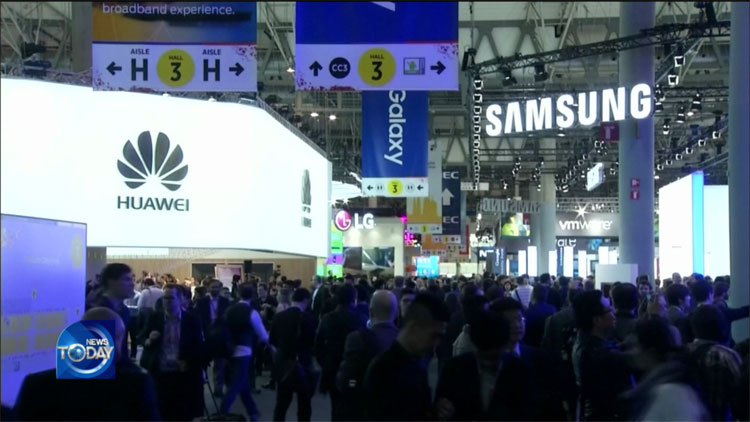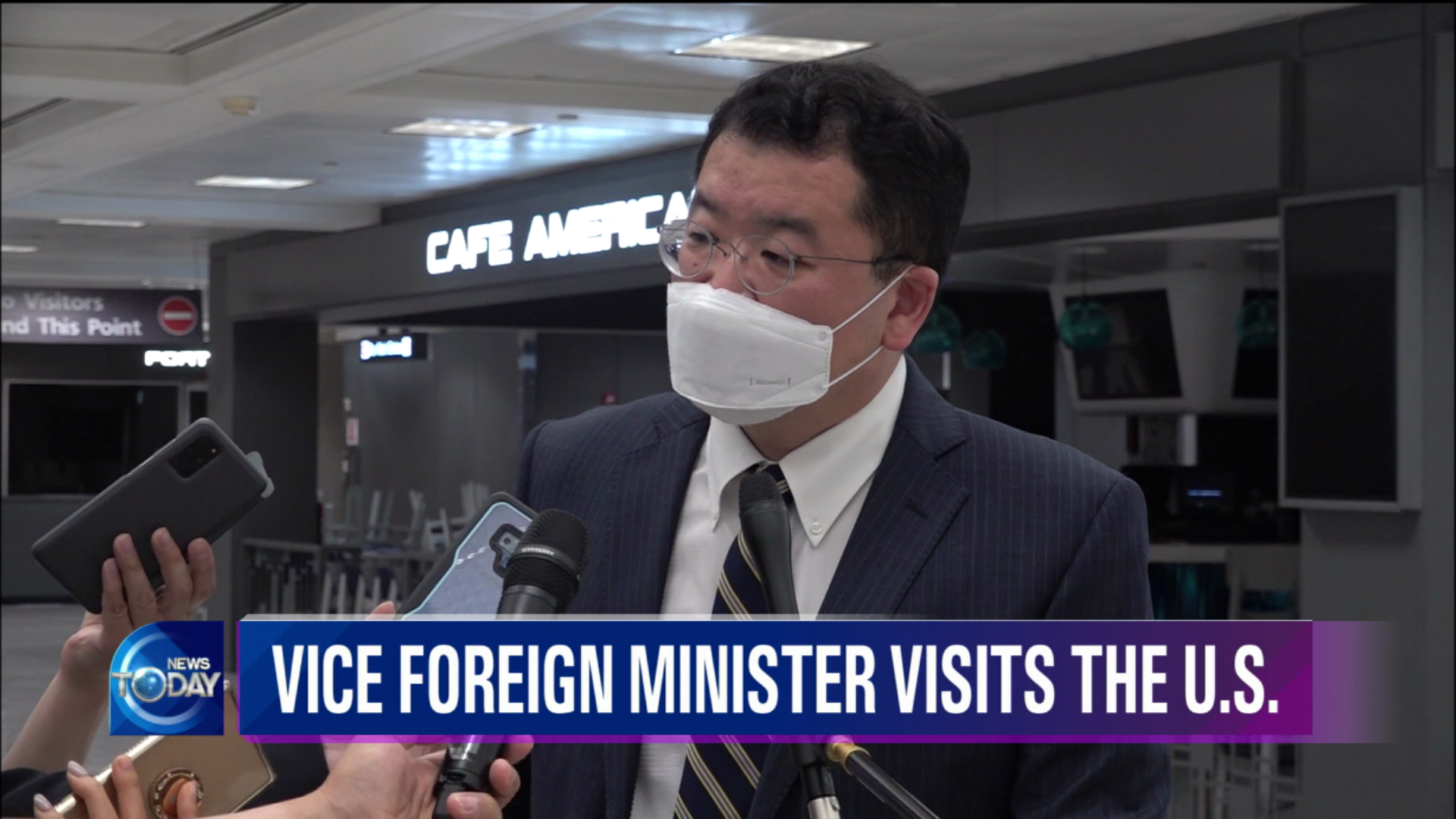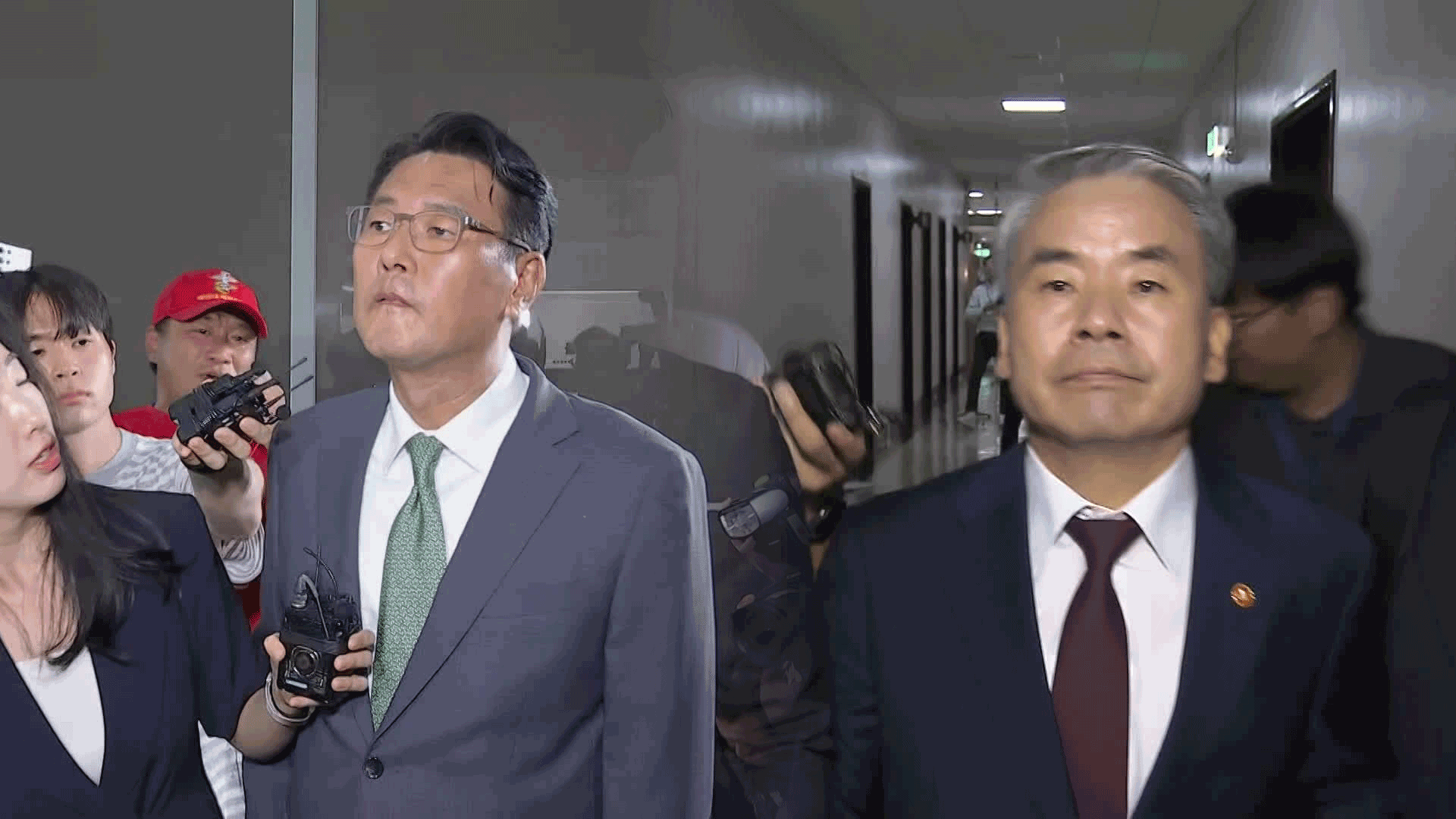U.S. RESTRICTIONS ON HUAWEI MAY AFFECT S.KOREA
입력 2020.09.10 (13:35)
수정 2020.09.10 (16:55)
읽어주기 기능은 크롬기반의
브라우저에서만 사용하실 수 있습니다.
[Anchor Lead]
With the United States imposing tougher restrictions on the Chinese IT giant Huawei, Korean chipmakers could hit a snag in their exports. Pundits say although they are expected to suffer a blow in the short term, they could seize a new opportunity in the long term.
[Pkg]
Last month, the U.S. Department of Commerce announced tough sanctions against Huawei. The goal was to block any unauthorized supply of semiconductors manufactured using American technologies and software to the Chinese IT giant. At the time, it was unclear yet if the measure would affect Korean businesses. But it has been confirmed recently that Samsung and SK have decided to halt their exports to Huawei. Selling memory chips to Huawei will become virtually impossible from September 15. The only way to supply memory chips to the Chinese company is by obtaining permission from the United States, which will likely be a challenge.
[Soundbite] YEON WON-HO(KOREA INSTITUTE FOR INTERNATIONAL ECONOMIC POLICY) : “Because the goal is to completely block the supply to Huawei, the U.S. is unlikely to grant permits.”
Last year, Samsung and SK sold memory chips worth around 10 trillion won to Huawei. Short-term repercussions will likely be inevitable, affecting small businesses that had transactions with Huawei and exports of display panels using semiconductors. However, some say the impact on Korean chipmakers is unlikely to be serious in the long term.
[Soundbite] AHN KI-HYUN(KOREA SEMICONDUCTOR INDUSTRY ASSOCIATION) : “As other companies manufacture Huawei's mobile phones, Korean companies can supply their memory chips to them to avert disruptions in overall supply.”
Pundits say this could be an opportunity for Korean businesse because Huawei is their number-one rival in the 5G telecommunication equipment and smartphone markets. However, the key point is to maintain the technology gap, as China might step up efforts to produce semiconductors locally. Another factor is the possibility of the U.S. government increasing pressure on its trade partners, including Korea, by imposing new sanctions ahead of the presidential election.
With the United States imposing tougher restrictions on the Chinese IT giant Huawei, Korean chipmakers could hit a snag in their exports. Pundits say although they are expected to suffer a blow in the short term, they could seize a new opportunity in the long term.
[Pkg]
Last month, the U.S. Department of Commerce announced tough sanctions against Huawei. The goal was to block any unauthorized supply of semiconductors manufactured using American technologies and software to the Chinese IT giant. At the time, it was unclear yet if the measure would affect Korean businesses. But it has been confirmed recently that Samsung and SK have decided to halt their exports to Huawei. Selling memory chips to Huawei will become virtually impossible from September 15. The only way to supply memory chips to the Chinese company is by obtaining permission from the United States, which will likely be a challenge.
[Soundbite] YEON WON-HO(KOREA INSTITUTE FOR INTERNATIONAL ECONOMIC POLICY) : “Because the goal is to completely block the supply to Huawei, the U.S. is unlikely to grant permits.”
Last year, Samsung and SK sold memory chips worth around 10 trillion won to Huawei. Short-term repercussions will likely be inevitable, affecting small businesses that had transactions with Huawei and exports of display panels using semiconductors. However, some say the impact on Korean chipmakers is unlikely to be serious in the long term.
[Soundbite] AHN KI-HYUN(KOREA SEMICONDUCTOR INDUSTRY ASSOCIATION) : “As other companies manufacture Huawei's mobile phones, Korean companies can supply their memory chips to them to avert disruptions in overall supply.”
Pundits say this could be an opportunity for Korean businesse because Huawei is their number-one rival in the 5G telecommunication equipment and smartphone markets. However, the key point is to maintain the technology gap, as China might step up efforts to produce semiconductors locally. Another factor is the possibility of the U.S. government increasing pressure on its trade partners, including Korea, by imposing new sanctions ahead of the presidential election.
■ 제보하기
▷ 카카오톡 : 'KBS제보' 검색, 채널 추가
▷ 전화 : 02-781-1234, 4444
▷ 이메일 : kbs1234@kbs.co.kr
▷ 유튜브, 네이버, 카카오에서도 KBS뉴스를 구독해주세요!
- U.S. RESTRICTIONS ON HUAWEI MAY AFFECT S.KOREA
-
- 입력 2020-09-10 13:35:28
- 수정2020-09-10 16:55:55

[Anchor Lead]
With the United States imposing tougher restrictions on the Chinese IT giant Huawei, Korean chipmakers could hit a snag in their exports. Pundits say although they are expected to suffer a blow in the short term, they could seize a new opportunity in the long term.
[Pkg]
Last month, the U.S. Department of Commerce announced tough sanctions against Huawei. The goal was to block any unauthorized supply of semiconductors manufactured using American technologies and software to the Chinese IT giant. At the time, it was unclear yet if the measure would affect Korean businesses. But it has been confirmed recently that Samsung and SK have decided to halt their exports to Huawei. Selling memory chips to Huawei will become virtually impossible from September 15. The only way to supply memory chips to the Chinese company is by obtaining permission from the United States, which will likely be a challenge.
[Soundbite] YEON WON-HO(KOREA INSTITUTE FOR INTERNATIONAL ECONOMIC POLICY) : “Because the goal is to completely block the supply to Huawei, the U.S. is unlikely to grant permits.”
Last year, Samsung and SK sold memory chips worth around 10 trillion won to Huawei. Short-term repercussions will likely be inevitable, affecting small businesses that had transactions with Huawei and exports of display panels using semiconductors. However, some say the impact on Korean chipmakers is unlikely to be serious in the long term.
[Soundbite] AHN KI-HYUN(KOREA SEMICONDUCTOR INDUSTRY ASSOCIATION) : “As other companies manufacture Huawei's mobile phones, Korean companies can supply their memory chips to them to avert disruptions in overall supply.”
Pundits say this could be an opportunity for Korean businesse because Huawei is their number-one rival in the 5G telecommunication equipment and smartphone markets. However, the key point is to maintain the technology gap, as China might step up efforts to produce semiconductors locally. Another factor is the possibility of the U.S. government increasing pressure on its trade partners, including Korea, by imposing new sanctions ahead of the presidential election.
With the United States imposing tougher restrictions on the Chinese IT giant Huawei, Korean chipmakers could hit a snag in their exports. Pundits say although they are expected to suffer a blow in the short term, they could seize a new opportunity in the long term.
[Pkg]
Last month, the U.S. Department of Commerce announced tough sanctions against Huawei. The goal was to block any unauthorized supply of semiconductors manufactured using American technologies and software to the Chinese IT giant. At the time, it was unclear yet if the measure would affect Korean businesses. But it has been confirmed recently that Samsung and SK have decided to halt their exports to Huawei. Selling memory chips to Huawei will become virtually impossible from September 15. The only way to supply memory chips to the Chinese company is by obtaining permission from the United States, which will likely be a challenge.
[Soundbite] YEON WON-HO(KOREA INSTITUTE FOR INTERNATIONAL ECONOMIC POLICY) : “Because the goal is to completely block the supply to Huawei, the U.S. is unlikely to grant permits.”
Last year, Samsung and SK sold memory chips worth around 10 trillion won to Huawei. Short-term repercussions will likely be inevitable, affecting small businesses that had transactions with Huawei and exports of display panels using semiconductors. However, some say the impact on Korean chipmakers is unlikely to be serious in the long term.
[Soundbite] AHN KI-HYUN(KOREA SEMICONDUCTOR INDUSTRY ASSOCIATION) : “As other companies manufacture Huawei's mobile phones, Korean companies can supply their memory chips to them to avert disruptions in overall supply.”
Pundits say this could be an opportunity for Korean businesse because Huawei is their number-one rival in the 5G telecommunication equipment and smartphone markets. However, the key point is to maintain the technology gap, as China might step up efforts to produce semiconductors locally. Another factor is the possibility of the U.S. government increasing pressure on its trade partners, including Korea, by imposing new sanctions ahead of the presidential election.
이 기사가 좋으셨다면
-
좋아요
0
-
응원해요
0
-
후속 원해요
0

















이 기사에 대한 의견을 남겨주세요.